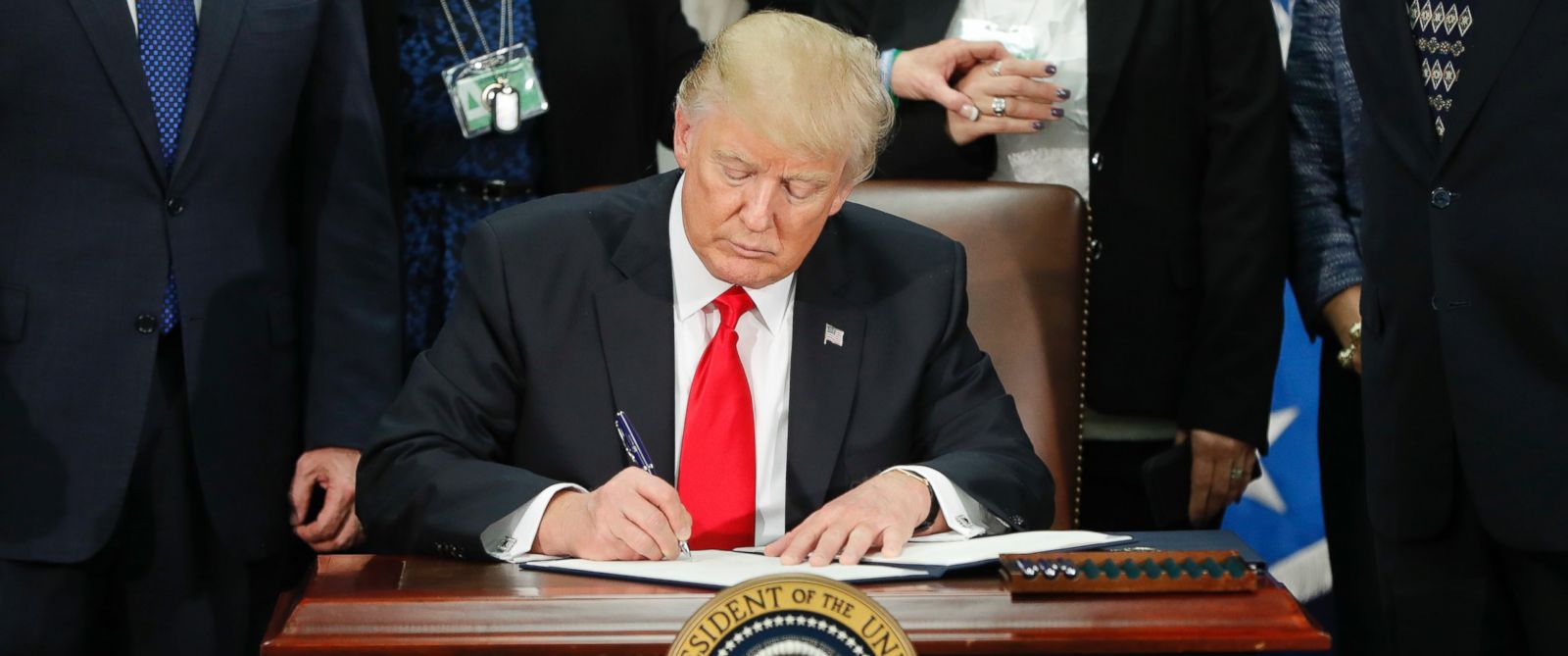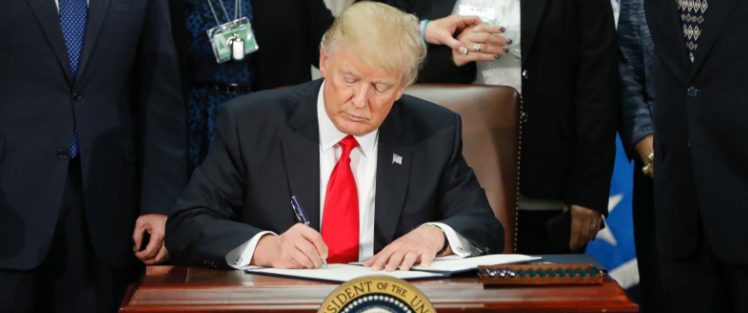Last semester I wrote a post after Election Day about how Trump’s presidency has a great potential to invigorate organizing power amongst marginalized people around the country. When things are “good”—our president is black, no one’s coming after anyone’s rights, etc. etc.—no one bats an eye. We get too comfortable, and therefore complacent, about the issues that directly impact our everyday lives. However, when an inexperienced celebrity ends up in the White House with a conservative army of representatives at his side, panic ensues. This was my prediction: with all the televised backlash, controversial statements, and harmful policies, the American people would have the motivation to use their democratic power in a way we’ve needed for decades.
But to be honest…I didn’t think it’d be this bad.
When I imagined Trump’s presidency back on election day, I knew having him as our commander in chief would be almost as uncomfortable as watching him dance with Melania. I knew it’d be more difficult to continue the momentum we’ve been having with the different civil rights movements of our time, such as putting pressure on cops for their racially-charged violence and pushing forward community-based immigration advocacy programs that have been going on around the country. But because of Trump’s campaign and the way the media reported on it, I couldn’t take him seriously on any level. I honestly didn’t believe he would have the competence to make important, informed decisions.

Welp.
Unfortunately, I was right about that. But that didn’t change the fact that he’s now allowed to make those decisions, which was evident from his first day in office. On election day, my first reaction to the results was fear for one of my childhood friends and his family, who immigrated here from Guyana and have been struggling ever since to make ends meet. Now, the danger of them being sent back has become uncomfortably real. Within a week of his presidency, Trump proved he should be taken seriously—not as a true leader, but as a threat to our values.
So what now? How do we stand up to odds that are presidential in their size and scope? We need to remember that as members of a democratic society, we have a lot of power. That power, however, is not personal, but comes from our ability to act collectively. As you have probably already seen from the Women’s March and protests at JFK this winter, when people come together and agree that one thing is really, really bad, there is some serious power there. The coming together, though, is the hard part. That’s where college comes in. In college, most of us are at the height of our energy and our brains are in the final stages of development and open to trying new and crazy things. Our enhanced physical abilities (“hold my beer…”) accompanied with the unique opportunity to be in proximity to thousands of people in our age group on a daily basis, allows us to join together and let our voices be heard. Organizing protests, rallies, and demonstrations can be done at any stage of life, but in college it’s much easier to get your feet wet and let the voices of you and your comrades be heard.
I myself do not have much experience in organizing, but on campus, there are plenty of initiatives going on to advocate for our own rights and the rights of our fellow Americans (and non-Americans). Students Without Borders hosts rallies on and off campus regularly, advocating for victims of police brutality, raising awareness of CUNY’s support of private prisons, providing information on the recent ICE agent scares, and pretty much anything else you can think of (their name is quite literal). The New York Public Interest Research Group (NYPIRG) is constantly looking to bring the needs of college students to the attention of New York senators and representatives in addition to taking trips to Albany to rally for dropping tuition and stopping the defunding of critical programs. The Student Organization for Democratic Alternatives (SODA) brought participatory budgeting to our campus, where they received funding from the state and allowed students to vote for the on-campus issues to which they would like to allocate funding such as stronger wifi, free printing, and charging stations. The Center for Ethnic, Racial, and Religious Understanding (CERRU) has been hosting events on campus every semester to advocate for unity across demographics and most recently have been hosting an Anti-Hate Teach-in series (highly recommend) on Wednesday evenings.
The list goes on. I’m lucky enough to have been exposed to all of these groups, so if you have any interest in learning more about them or other groups on campus, please leave a comment or email me at kevon.manners@gmail.com. We need to start being active on this campus, because being in college during such a pivotal time is a unique opportunity that may not come again.


